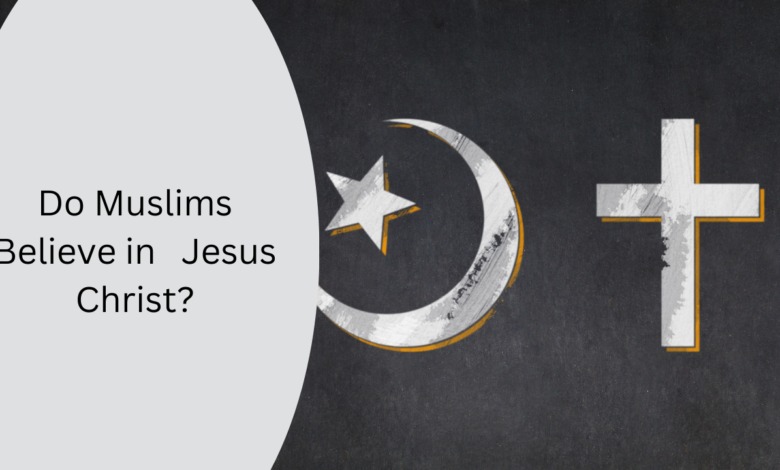
Do Muslims Believe in Jesus Christ?
Yes, Muslims believe in Jesus Christ, whom they refer to as ‘Isa’ or ‘Isa ibn Maryam.’ He is regarded as a prophet and holds a significant place in Islamic theology.

Introduction
Religion is a complex and diverse tapestry, with each faith holding its own set of beliefs, practices, and traditions. Christianity, one of the world’s largest religions, centers around the life and teachings of Jesus Christ. On the other hand, Islam, another major global religion, follows the teachings of the Prophet Muhammad. However, there is an intriguing intersection between these two faiths – Muslims do indeed have a belief in Jesus Christ. But what exactly does this belief entail? In this article, we will explore the Islamic perspective on Jesus and how it differs from the Christian view.
The Importance of Jesus in Islam
In Islam, Jesus is known as ‘Isa’ or ‘Isa ibn Maryam,’ which translates to Jesus, the son of Mary. He holds a significant and revered position within Islamic theology. While the Islamic view of Jesus differs in some aspects from the Christian perspective, Muslims do believe in the existence and importance of Jesus in the following ways:
- Jesus as a Prophet: In Islam, Jesus is considered one of the great prophets sent by God (Allah). He is part of a long line of prophets, including Adam, Noah, Abraham, Moses, and Muhammad, among others. Muslims view Jesus as a messenger who delivered God’s message to the people of his time.
- Miraculous Birth: Islamic tradition affirms that Jesus was born to the Virgin Mary through a miraculous birth. This parallel with Christian belief underscores the significance of Jesus in both religions.
- Miracles: Similar to the Christian accounts, the Quran describes several miracles performed by Jesus. These include healing the sick, raising the dead, and speaking eloquently as a child, demonstrating his divine mission and connection to God.
- Messiah: In Islam, Jesus is also recognized as the Messiah (al-Masih). While the understanding of the term differs from the Christian concept, it signifies Jesus’ role as a chosen and anointed one of God.
- Second Coming: Islamic tradition holds that Jesus will return to Earth in the future as a precursor to the Day of Judgment. This belief is parallel to the Christian concept of the Second Coming.
Also check.
- What is Interest in Islam?
- Who is the Holy Spirit in Islam?
- Who Wrote the Quran?
- Who are Kiraman Katibin in Islam?
- Why is Jerusalem Important to Islam?
Key Differences between Islamic and Christian Beliefs about Jesus
While there are similarities in the belief in Jesus between Islam and Christianity, there are also significant differences:
- Divinity: One of the most fundamental distinctions is the divinity of Jesus. Christians believe in the Holy Trinity, which includes Jesus as the Son of God. In contrast, Muslims strictly adhere to monotheism, denying the divinity of Jesus and any association with God.
- Crucifixion: Christian doctrine holds that Jesus was crucified and resurrected, which is central to Christian salvation. In contrast, the Quran suggests that Jesus was not crucified but was raised to God before his crucifixion could occur, without specifying the exact nature of his departure.
- Salvation: Christians believe that faith in Jesus Christ leads to salvation, while Muslims believe that salvation is attained through faith in one God (Allah), righteous deeds, and God’s mercy.
Conclusion
In conclusion, Muslims do believe in Jesus Christ, albeit with important theological differences compared to Christianity. In Islam, Jesus is revered as a great prophet, the Messiah, and a miraculous figure in religious history. While there are similarities in the narratives surrounding his birth and miracles, the core differences revolve around the divinity of Jesus, his crucifixion, and the path to salvation. Recognizing these shared beliefs and differences is essential for fostering interfaith understanding and dialogue, promoting respect for diverse religious perspectives, and building bridges of communication among people of different faiths.

FAQs
Do Muslims believe in Jesus Christ?
Yes, Muslims believe in Jesus Christ, whom they refer to as ‘Isa’ or ‘Isa ibn Maryam.’ He is regarded as a prophet and holds a significant place in Islamic theology.
How do Islamic beliefs about Jesus differ from Christian beliefs?
The primary difference lies in the divinity of Jesus. While Christians believe Jesus is the Son of God, Muslims strictly adhere to monotheism and do not consider Jesus divine. There are also differences in the crucifixion and salvation narratives.
What is the significance of Jesus in Islam?
In Islam, Jesus is recognized as a great prophet, the Messiah, and a miraculous figure in religious history. He is revered for his teachings and miracles.
Is the Islamic belief in Jesus similar to the Christian belief?
There are similarities, such as the miraculous birth of Jesus and his role as a prophet and Messiah. However, the theological aspects, including his divinity and crucifixion, differ significantly.
What role does Jesus play in Islamic eschatology?
Muslims believe that Jesus will return to Earth in the future as a precursor to the Day of Judgment. This belief is similar to the Christian concept of the Second Coming.
How can interfaith understanding be promoted between Muslims and Christians regarding Jesus?
Interfaith dialogue, open discussions, and respectful exploration of each other’s beliefs are essential in fostering understanding and harmony between Muslims and Christians with differing perspectives on Jesus.
What is the Quran’s stance on Jesus?
The Quran acknowledges Jesus as a prophet and describes his miraculous birth and some of his miracles. It also emphasizes the oneness of God and Jesus’ role as a messenger.
Can Muslims and Christians find common ground in their beliefs about Jesus?
While there are differences, both faiths share a reverence for Jesus and his teachings. Finding common values, such as love, compassion, and moral principles, can be a starting point for dialogue and understanding.
Are there any historical or cultural factors influencing the Islamic view of Jesus?
The Islamic view of Jesus has been shaped by historical and cultural factors, including the proximity of Christianity to early Islam and the interactions between the two faiths in various regions.
How can individuals of different faiths engage in meaningful conversations about Jesus?
Engaging in respectful and informed discussions, seeking common ground, and being open to learning about each other’s beliefs are crucial for meaningful interfaith conversations about Jesus Christ.




